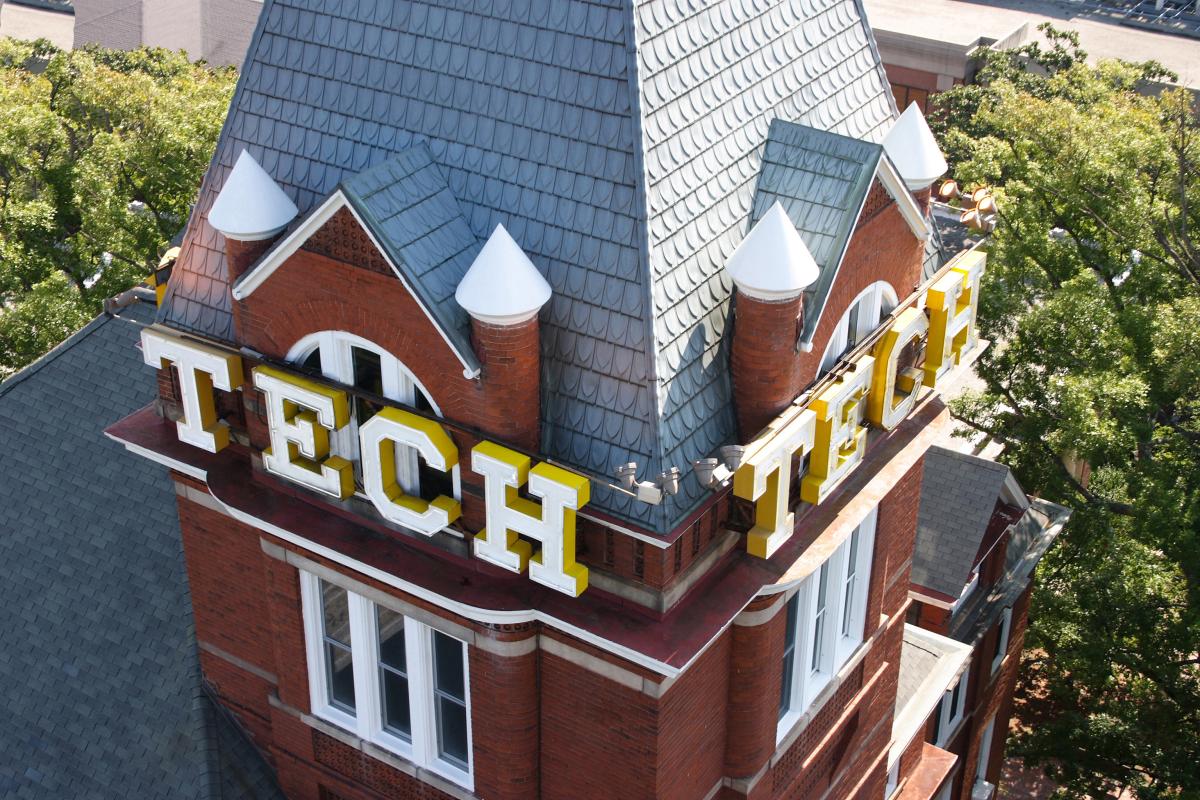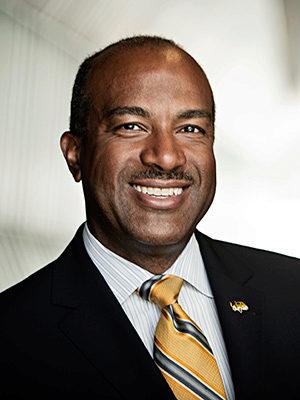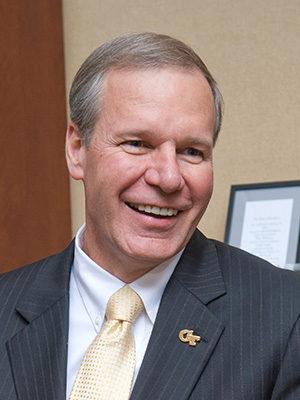
Few people are able to rise to the top on their own, and all great leaders will tell you that they had help getting to where they are in their careers. Whether it was a teacher that pushed them or a colleague that offered guidance, someone along the way had an impact on them and helped shape their path.
We talked to Georgia Tech president Bud Peterson and College of Engineering dean Gary May to find out what makes a good mentor and how mentors have impacted their lives.
President Peterson
How have mentors shaped your career?
Mentors have been enormously important in my career. I've had some great mentors. My career took an unusual path- I never really thought about being a president- and things just kind of happened. There were some key people who guided me along the way.
Who were some of those mentors?
I had a mentor in college. I played football in college and there was an engineering seminar that you had to take on Thursday afternoons at 3:30, and you had to do it once a month. You had to have it to graduate. The problem is if you don't practice on Thursday afternoon you don't play on Saturday, so every semester I had to write a paper for the assistant dean of engineering at Kansas State to substitute for the seminar. The assistant dean's name was Ken Gowdy. It turned out I was the second football player to graduate from mechanical engineering at Kansas State and Ken Gowdy was the first. We got to know each other quite well and he was very important to me in terms of giving me career guidance periodically. I didn't talk to him a lot about it, but I can think of three or four times in my career when he made some sort of statement that impacted me. I was working full time and working on my master's degree, driving 75 miles one-way to take a course, then driving 75 miles back, and I had three children. We got together one day and he said "You really need to find a place where you can work and pursue a PhD at the same time." That place was Texas A&M and I'm not sure I would have gotten the position without his help. I don't think I would have even thought about it without him. I was able to get a faculty position and teach full-time while I worked on my PhD.
The president at Texas A&M while I was there, Ray Bowen, was president for about eight years. I watched him and what he did, and how he handled issues, some of which were very challenging. The most challenging was when the bonfire collapsed. I think he had planned on retiring, but when that happened he stayed on to help Texas A&M work through that tragedy and I saw the compassion, wisdom, care, and patience he exhibited during what was a very traumatic time at that institution. I watched him in his career and he was very helpful to me. He actually called me and told me to apply for the job at University of Colorado. It was great and was a very fulfilling time in my career.
I think we can all think of teachers we've had who have impacted us. I can think of a teacher in my senior year in high school, an English teacher named Everett Reese. He didn't like student athletes and he made us read 30 books and write 30 themes. He made me realize how important communications are. When I published my first journal article I sent it to him with a note and he sent it back marked up with a red pen. He was very influential in my life.
My freshman football coach, RC Slocum, had a big impact on me. He left Kansas State after my sophomore year and wound up as the head coach at Texas A&M and we were able to stay in touch and talk regularly. I was a walk-on in college and he encouraged me and pushed me to keep trying. He helped me persevere through that and I eventually got put on scholarship. The first telephone call I got as Chancellor at the University of Colorado at Boulder was from RC Slocum. Five minutes after 8 am on my first day he called to congratulate me. He was always out there watching me and following my career.
What characteristics make someone a good mentor?
The thing that characterizes all of those folks is that they were very good listeners. They didn't talk a lot but they offered sound advice, often things that I hadn't considered. It wasn't about telling me what I should do, but about asking me what it was I wanted and then finding the best way to accomplish that. I tried to figure out what those people all had in common and that's what it was. It wasn't telling me what I should or shouldn't do, but helping me understand what it was I wanted to do. They helped me focus.
A lot of times if you just talk to somebody you talk yourself through a decision or a problem. When you go back and think about the conversation you realize that you talked convinced yourself what to do. They didn't necessarily direct you, but they acted as a sounding board to help you evaluate choices.
When you're looking for a mentor you should spend less time looking for someone in a significant role than you should looking for someone who you can talk to freely, and with some regularity. The most important characteristics are for them to be able to relate to you and understand your situation. Are they interested in you and your success?
My advisor who I was assigned in college, he and I never had a connection. He signed my registration papers and that was the extent of our relationship. But I had a thermodynamics teacher who was a great mentor- Herb Ball- and he made me do things academically I never thought I was able to do. He was instrumental in helping me realize that thermodynamics was what I wanted to focus on, and that was when I was a sophomore in college. You never know who could wind up being a mentor for you. It’s all about forming connections.
Dean May
As the dean of the College of Engineering how important is mentoring to you?
Mentoring is critical. Former Surgeon General Joycelyn Elders said "You can't be what you don't see." I agree with that philosophy, that people need role models. Even more than just seeing, you need someone to help you actualize what you want to be. That's what a mentor is- someone you can ask questions to and bounce ideas off of. It's not just about professors and people in academia either. I think everyone can benefit from having a mentor.
Who are some key people who have influenced you?
Every supervisor that I've had, from when I was an assistant professor until now, has been very impactful, particularly Roger Webb, my first supervisor in ECE, and my predecessor, Don Giddens.
What advice would you give to a new CoE employee looking for a mentor?
Almost everyone in the College of Engineering has a counterpart in one of the other colleges. With these similarities there comes shared experiences and the chance to learn from each other. This is particularly important for those looking to progress in their careers here at Tech. There's also a tremendous amount of institutional knowledge throughout our schools and more experienced employees are generally happy to share that knowledge. I'm a believer in getting to know people over food, and eating with colleagues is a great way to pick their brains.
For faculty it may not be as straight forward. We do encourage junior faculty to find mentors and we encourage senior faculty to be mentors. When I was the school chair in ECE we had an award for the best mentor and mentee combination and that implicitly recognized people who were doing a good job at this. I don't think that you can do explicit matchmaking and force people to be a mentor or have a mentor. You have to help it grow organically by positive reinforcement.
We have tremendous employees within the college as both faculty and staff, and we want them to encourage each other and take an interest in each other’s careers and lives. It makes us stronger as a college.

